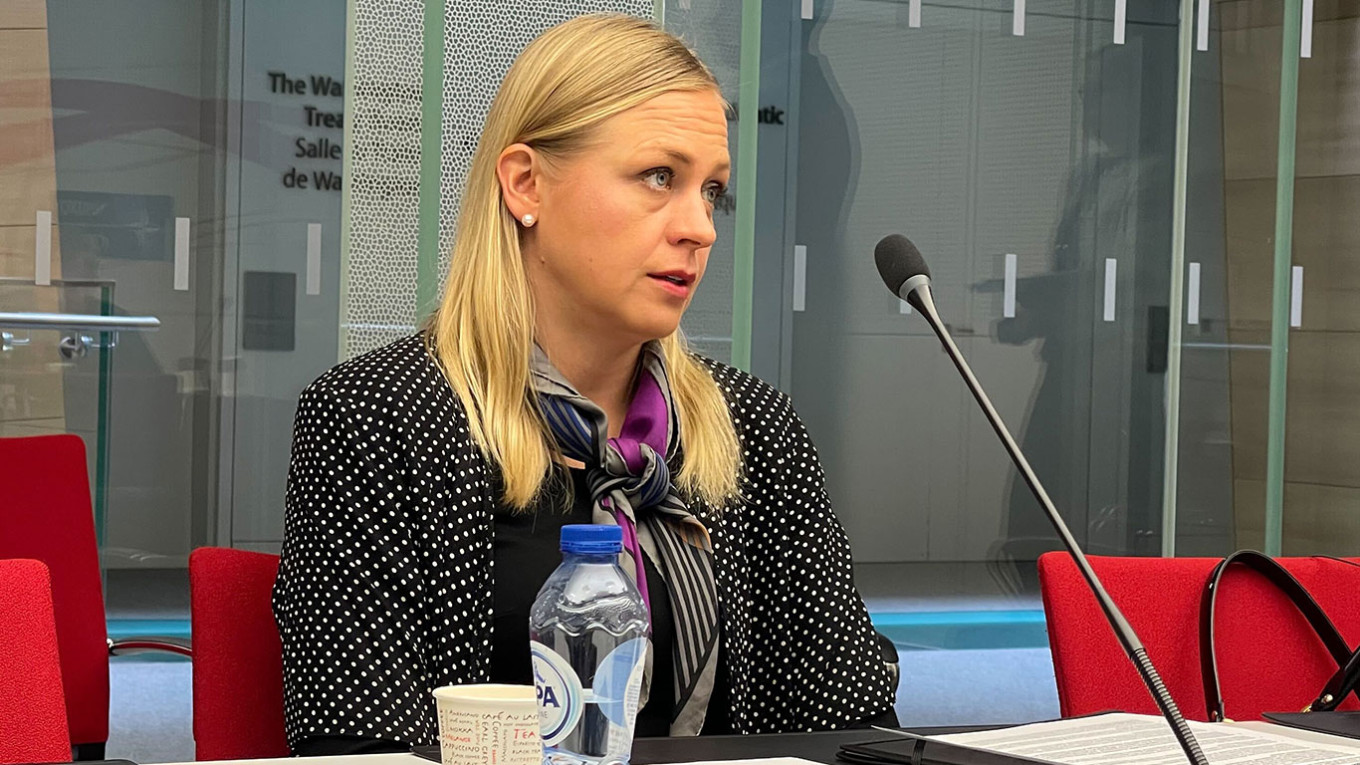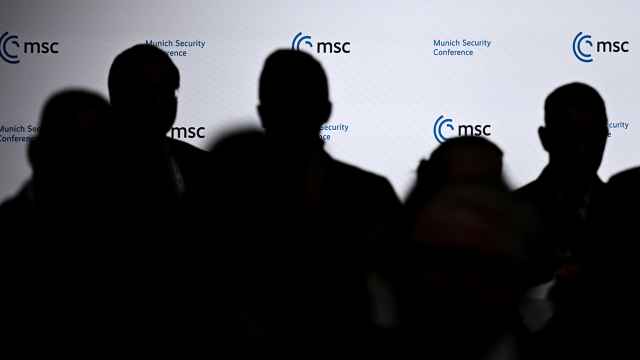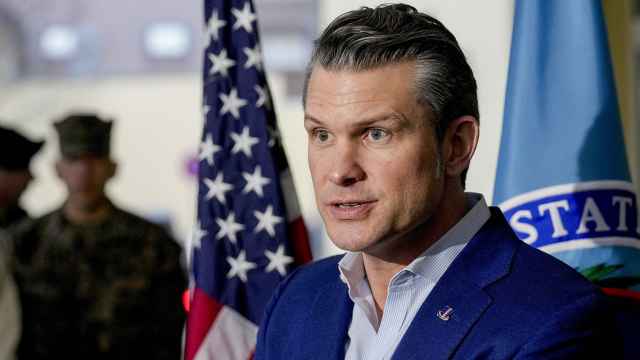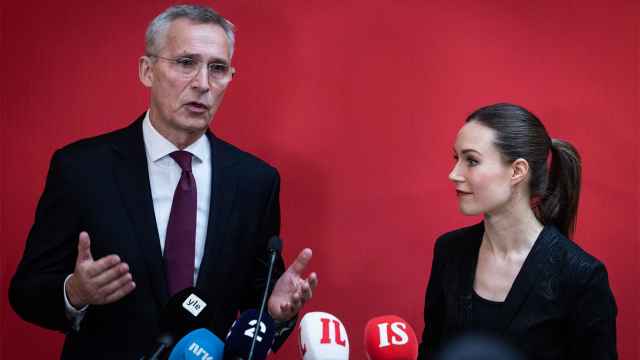BRUSSELS — Finland views Ukrainian strikes on oil refineries and military targets inside Russia as legally justified, Foreign Minister Elina Valtonen told The Moscow Times on the sidelines of a NATO foreign ministers meeting.
Ukrainian drone strikes on Tuesday targeted an oil refinery and a drone assembly plant in the republic of Tatarstan, the farthest-reaching strikes inside Russia since Moscow invaded Ukraine over two years ago.
“The UN Charter allows a country, while it defends its independence, to attack targets which are military. So I would just leave it like that,” Valtonen told The Moscow Times on Wednesday.
Ukraine has regularly launched drones at Russian energy infrastructure, including refineries, fuel storage facilities and other sites, since the start of the war in a bid to sabotage the Kremlin’s war machine.
NATO members have been divided on Kyiv’s attacks on Russian soil. Some warn that doing so risks further escalation from Russia and could destabilize the global energy market, while others insist that Ukraine should be free to defend itself without constraint.
U.S. Secretary of State Antony Blinken, speaking alongside his French counterpart in Paris, said earlier this week that Washington “has neither supported nor enabled” strikes by Ukraine outside its internationally recognized borders.
But French Foreign Minister Stephane Sejournet at the same press conference said that Kyiv is acting “within the framework of legitimate defense.”
Finland ended decades of nonalignment by joining NATO early last year in a direct response to Moscow’s invasion of Ukraine. Its accession, which extended NATO’s border with Russia by nearly 1,300 kilometers, dramatically reshaped Europe’s security landscape.
Speaking with independent Russian media at the NATO foreign ministers meeting — which marked the U.S.-led alliance’s 75th anniversary — Valtonen said Finland now feels more secure as a NATO member.
The Kremlin, which has always viewed NATO with hostility, repeatedly cites the alliance’s eastward expansion as part of its overarching justification for its full-scale invasion of Ukraine.
Moscow initially responded to Finland’s — and later Sweden’s — accession to NATO by saying it did not feel threatened by the alliance’s Nordic expansion. In December, President Vladimir Putin said Russia and Helsinki had “the most cordial relations” before Finland joined NATO.
Soon after, Finland saw an influx of asylum seekers from the Middle East, Africa and other regions coming from across the Russian border and closed its land border in response. Helsinki accuses Moscow of using the asylum seekers as a destabilization ploy, claims that Russia denies.
“Russia has been engaged in this kind of action before, [including] toward Finland. It was 2015 when this last happened,” Valtonen told The Moscow Times. “Probably, it is a way to show that they are able to do it. But I am not here to speculate what the motives might be.”
Finland on Thursday said it would extend its border closure with Russia “until further notice.”
Helsinki has evidence that Russia is “not only mobilizing people toward the border and crossing the border with Finland in their own country, but also from abroad from their original countries,” she told reporters, saying the border would reopen as soon as Russia stopped sending asylum seekers.
While Putin has said Finland faced no threats from Russia, he has also warned that Moscow could boost the Russian army’s presence along the Finnish border now that the Nordic country is a NATO member.
“There were no problems [before]. Now there will be. Because we will now create the Leningrad military district and concentrate military units there," Putin said in December. “Why do they need this? It's just nonsense.”
However, according to Valtonen, this promised build-up of troops has not yet materialized.
“Russia, of course, has had troops along and in the vicinity of the Finnish border. Indeed, the border has never been this empty in this regard,” Valtonen told reporters.
“Russia announced its plans of forming these new military districts [in the republic of Karelia, which neighbors Finland] almost a year ago,” she continued. “And we [haven’t seen] anything happen ever since. Apparently, they are not in a rush.”
Nevertheless, she said, Finland is prepared for any threats that might arise from Russian military posturing.
“We don't feel any immediate military threat from Russia,” Valtonen said. “[The threat] is more strategic because we see that Russia not only uses words to threaten its neighbors or dream of an imperialist agenda, but it is also willing and able to execute these plans.”
“Of course, for the long-term, this could mean anything,” she added.
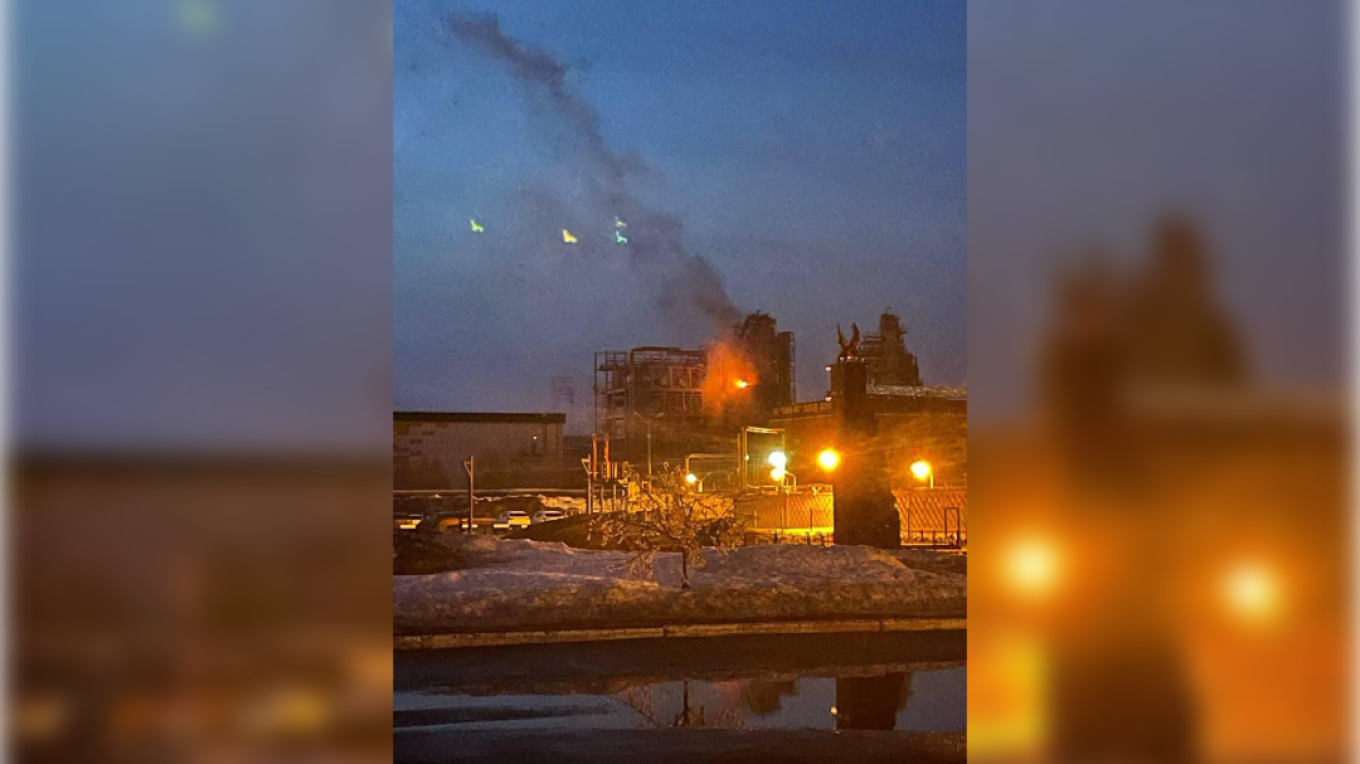
Now in NATO, Finland views its primary mission as securing the military alliance’s border with Russia, as well as supporting Ukraine with arms as it continues its defense against invading Russian forces.
French President Emmanuel Macron last month raised eyebrows by saying he would not rule out the possibility of his country sending troops to Ukraine to fight alongside Kyiv’s forces.
Valtonen at the time acknowledged the long-term possibility of Western troops being sent to Ukraine.
When asked on Wednesday whether Finnish troops could be sent to Ukraine, she said it was very unlikely to happen in the near future.
"Finland at this stage is not [going to] send its troops to Ukraine,” she told The Moscow Times.
“What happens in the future — we have not only the ability, but also the duty, to discuss any options. We don't know what the future brings. But for the short-term and medium-term, this is totally off the cards.”
A Message from The Moscow Times:
Dear readers,
We are facing unprecedented challenges. Russia's Prosecutor General's Office has designated The Moscow Times as an "undesirable" organization, criminalizing our work and putting our staff at risk of prosecution. This follows our earlier unjust labeling as a "foreign agent."
These actions are direct attempts to silence independent journalism in Russia. The authorities claim our work "discredits the decisions of the Russian leadership." We see things differently: we strive to provide accurate, unbiased reporting on Russia.
We, the journalists of The Moscow Times, refuse to be silenced. But to continue our work, we need your help.
Your support, no matter how small, makes a world of difference. If you can, please support us monthly starting from just $2. It's quick to set up, and every contribution makes a significant impact.
By supporting The Moscow Times, you're defending open, independent journalism in the face of repression. Thank you for standing with us.
Remind me later.



